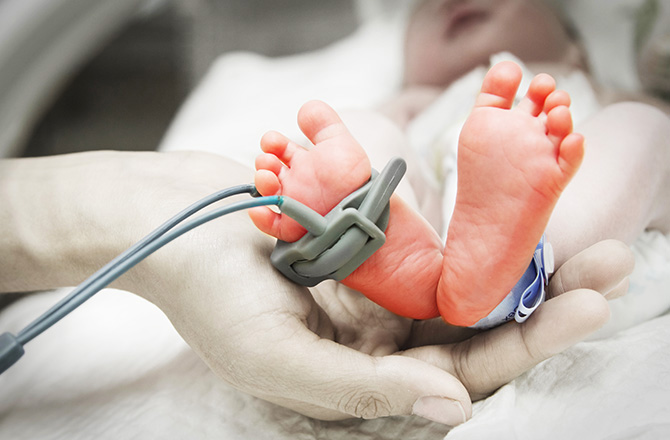Prematurity, also called premature birth or preterm birth refers to the birth of a baby in less than 37 weeks age of gestation. It means that the birth occurs before the baby is due, since a pregnancy usually lasts about 40 weeks. Since childbirth is early in premature birth, the baby is not fully developed and is at risk for medical complications. The following are the causes, signs and symptoms, and home remedies for prematurity.
Causes
Prematurity is usually due to medical conditions. According to New York Times, these include diabetes, cardiovascular disease, and renal diseases; although, the exact root for the premature birth is unknown. As per the publication, multiple pregnancies like twins or triplets account for 15 percent of the total number of preterm births. Some pregnancy-related issues also heighten the risk of premature delivery and they include cervical incompetence, history of preterm delivery, birth defects of the uterus, infections, preeclampsia, poor nutrition before or during pregnancy, and premature rupture of membranes.
Signs and Symptoms
Prematurity presents several signs and symptoms. According to New York Times, these include abnormal breathing patters or shallow and irregular pauses in breathing, lanugo or body hair, enlarged clitoris in female babies, less body fat, lower muscle tone and less activity, feeding or sucking problems, small and smooth scrotum, cryptorchidism or undescended testes, anemia, bleeding into the brain or brain damage, infection or sepsis, hypoglycemia or low blood sugar, respiratory distress, jaundice, and intestinal inflammation, among others.
Home Remedies
While the baby is endorsed to the neonate intensive care unit or NICU, some remedies can be employed to help manage the condition.
Know How To Care
It is vital for a parent to know and understand her baby’s medical condition. This way, parents will be able to monitor their baby’s progress, reduce their anxiety, and start embracing parenthood. According to Mayo Clinic, it is essential to know about medication use, monitor use, supplemental oxygen, and other treatments. As per the publication, concerns on breathing and/or feeding should be raised to the baby’s health care provider. For instance, the parents may ask details on the amount and frequency of feeding, taking into account that preterm babies usually eat less and may have to be fed more often that the full-term babies.
Eye Check with Ophthalmologist
Premature babies are at risk for retinopathy or prematurity or ROP. Thus, physicians usually refer the preterm baby to an ophthalmologist to check for growth of abnormal blood vessels. According to the American Academy of Ophthalmology, presence of such growths require treatment. As per the publication, treatment for ROP includes one or the combination of medication eye injections, laser treatment, and cryotherapy or freezing treatment. Studies are also ongoing for the eye medications, which are injected into the eye to stop abnormal blood vessel growth.
Spend Time with the Baby
Parenthood follows after delivery, so it is a good practice to allow contact between the mother and the child. According to Healthy Children, this “skin-to-skin” care is called kangaroo care. As per the publication, parents can touch and hold their babies in a certain span of time, but this happens as soon as the physician confirms stability of the newborn.
Premature birth equals an underdeveloped baby or neonate; thus, medical treatment, such as intubation, insertion of gastric tube, and keeping the baby stable in an incubator may be done. It is best to coordinate with the baby’s doctor to be able to provide the best treatment and care possible.
Source: genesisresearchtrust.com








